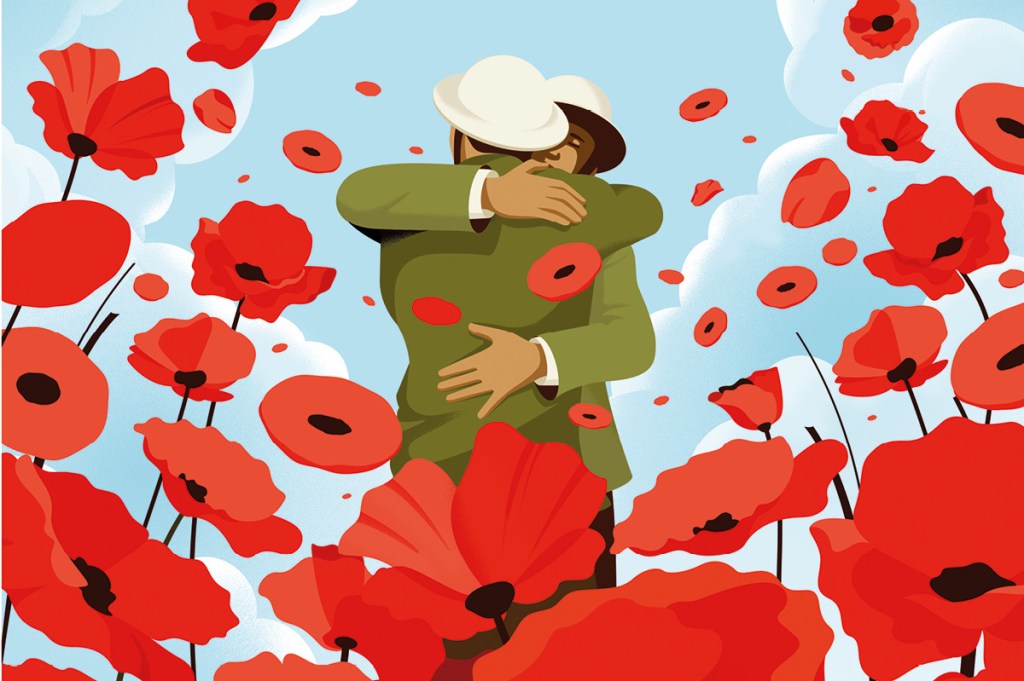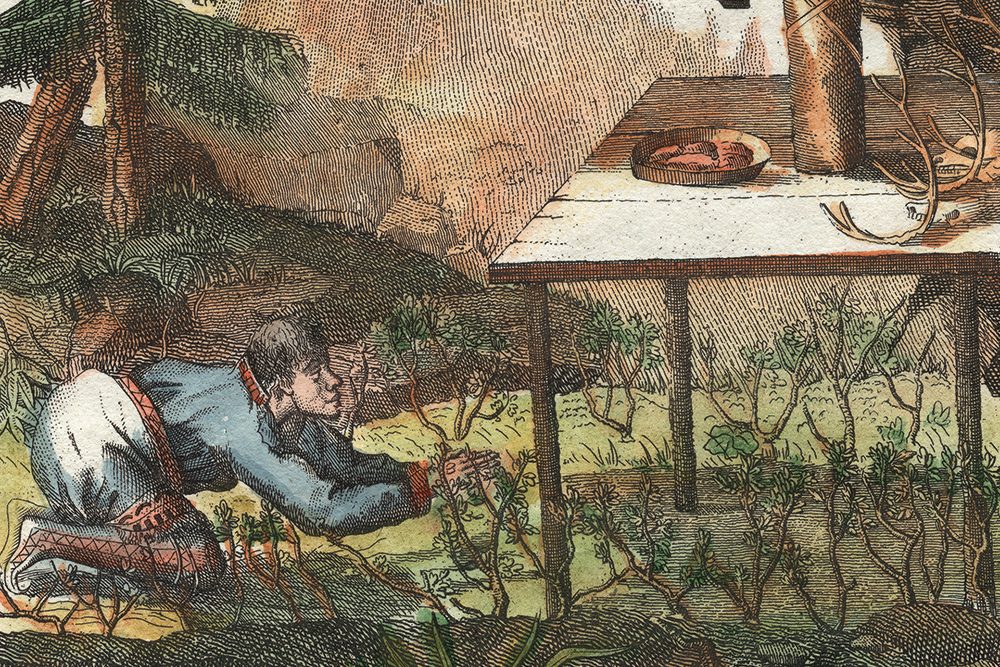Alice Winn’s beautifully written and engrossing debut, In Memoriam, comes hot on the heels of Tom Crewe’s debut The New Life, which followed the tortured relationship between two men at the turn of the century, and was loosely based on the life of the scholar John Addington Symonds. Winn has turned her impressively attuned eye to World War One, and two young men who fall in love at their public school (old money, military and aristocratic connections, tailcoats and buggery), before heading off to the front; the flower of their generation, doomed to die as the mechanistic future tears apart chivalric ideals, and society starts to question its very nature.
It’s interesting that both Winn and Crewe chose to delve into the past for their first novels: whether this is symptomatic of a wider unease with the content and aesthetic of contemporary fiction or simply the way the market currently functions remains to be seen: Lord knows, the world loves a beautiful, doomed posh boy. Winn follows Alan Hollinghurst’s The Stranger’s Child, in which a poet (fictional gay toff based on Rupert Brooke) is killed in World War One and Julian Mitchell’s Another Country, in which a boy (another fictional gay toff, based on Guy Burgess) becomes a traitor; and Winn freely acknowledges her debts to R.C. Sherriff’s 1928 play Journey’s End (fictional straight toffs at the front), the writer Saki (gay, died in the trenches) and others.
Winn’s hero is the teenaged Sidney Ellwood, rich, handsome, capricious and languorous; he writes poetry, and suffers for his Jewish heritage (his ancestors came from Baghdad and quickly acclimatized). In this he more than resembles Siegfried Sassoon (the name of Ellwood’s house, Thornycroft Manor, is a subtle nod to Sassoon’s mother, Theresa Thornycroft). At the start of the book, Ellwood is a prefect, a lordling in the cloistered confines of his school, Preshute. Having had an affair with an older boy, in turn he has sex with younger boys and discards them without compunction. Homosexual relations are rife in this homosocial world, but it’s discreetly understood that such fumblings are temporary, and anyone who indulges in them must not take it too seriously. They’ll end up marrying each others’ sisters, after all, and those who do get caught are in serious trouble (what with homosexuality being illegal at the time).
Winn, who herself attended Marlborough College (a boarding school in Wiltshire) succeeds brilliantly in evoking Preshute’s atmosphere. The school itself seems to point towards the boys’ doom (read the name as “Pre-shoot”; also one of the houses is somewhat glaringly called Cemetery House, which surely, if we are following Nancy Mitford’s rules, ought to be Graveyard). There are jollities and hardships: it’s hardly a prelapsarian environment. Several scenes are set in narrow and confined places, prefiguring the horrors of the trenches: a bathroom, where the boys gather to get drunk and feel each other up; a cave, where rituals for a secret society, the Ardents, take place. The boys’ burning natures, jingoistic and hearty, are being set up for a fall, and the contrast between these handsome, mostly carefree youth playing at soldiers and the coming grim reality is keenly conveyed.
Brooding over everything is Ellwood’s aptly named friend Gaunt, a boy who buries his true self deep within a carefully contrived carapace. He’s part German (his mother calls him “Heinrich,” much to his distaste), and deeply confused about his sexuality, entering into a sadomasochistic relationship with an older boy, asking to be punched so at least it looks like he put up a fight. One of the book’s refrains is that Gaunt is always “fine” — he’ll never admit to weakness.
Ellwood and Gaunt dance around each other, afraid of revealing themselves, particularly because Ellwood is supposed to be in love with Gaunt’s sister, Maud, a bluestocking with progressive views who wants to be a politician. Repression and stiff upper lips are the order of the day, and there is much “accidental” touching of thighs, as well as a particularly well-wrought scene on a bridge, where the boys almost — but only almost — kiss: their final moment together before everything changes irrevocably.
In late summer 1914 the cloud of war is already hanging over the school; casualties are reported in the school newspaper, and the boys are effectively pressganged into signing up for what they believe will be a glorious Boy’s Own adventure, all but cheering as they prepare to fight for King and Country. As Ellwood enters the trenches, many details evoke the true horrors of the war: the mud, it turns out, is laden with corpses; occasionally hands and other limbs emerge from it. Sometimes the bodies appear to be animated, but it’s by rats or the tremors of explosions: the walking dead. There are hideous daily hazards: soldiers often fall into the latrines and terror lurks in many forms. Its effects on the men are devastating.
Winn knows the details which will tug at the heartstrings: one young officer wears the signet rings of his two dead brothers as well as his own, as if they will protect him from doom. When fifteen-year old Gosset arrives (having persuaded the recruiting officer that he’s eighteen), the men ghoulishly bet on how long he’ll last. Winn is also a screenwriter, with an eye for a striking, cinematic image: when Ellwood thinks Gaunt is dead, his “ghost” haunts him, dressed in school uniform, among the trenches. These soldiers were little more than children, trudging across the mud, sent straight into machine gunfire without even a tin helmet. What were the generals thinking? It seems, from our viewpoint, insane.
The novel is structurally sophisticated, with flashbacks to school life which bring relief to the strife and strafing of the war, and delve further into Gaunt and Ellwood’s characters. The “will they, won’t they” narrative powers the plot: on their brief respites from the front, Gaunt and Ellwood explore each other sexually, never quite acknowledging their love. They stand to lose too much. Their tenderness and fierceness are rendered acutely and believably, and when they eventually admit their feelings, you cheer them on.
Winn is also excellent at intertextuality. The boys are positively engorged with texts, and quote extensively from them (as the lads would have done at the time). Ellwood is a fan of Tennyson (whose poem, In Memoriam, for his friend Arthur Hallam, is a coy pointer toward his own inclinations, and gives the book its title); Gaunt is a classicist, finding solace in Thucydides: his troubles are ancient, and men have recovered from them. When Gaunt is taken prisoner, he recites lines from the Iliad — that great poem about the inevitability of war as a human condition, and the universality of human suffering. As Cormac McCarthy has said, books are made from other books, and Winn is acutely aware of where she stands: this is no country for young men.
There is an undeniable tension at the heart of the book: Winn decries the public-school system, seeing it as fostering an empty-headed patriotism, forcing boys to cover up their true feelings. She even (anachronistically) trots out Evelyn Waugh’s remark that boarding school is good preparation for prison. (Mine certainly wasn’t — my father used to joke about it being more like a country club.) But Winn is simultaneously happy to reap the aesthetic benefits of the upper-class milieu. “England is magic,” breathes Ellwood at one point, only to discover that it isn’t, because of the war and imperialism and the class system and so on. When Ellwood and Gaunt meet another officer, Hayes, who isn’t a public-school man, they are (initially) snobby about him, but he’s just as good as they are, if not better. Yet had Winn chosen to write Hayes’s story instead, there would have been no cloisters and tailcoats. Or literary allusions, far more importantly.
This is a remarkable debut, with a keen and wise understanding of human nature. If Winn’s material is familiar, she handles it with skill and panache. And it certainly doesn’t hurt to be reminded of the hellishness of the Great War, the sacrifice of so much that was good, and the devastation it caused. In Memoriam is a monument, in its way, to all those boys and men, beautiful or not, well-educated or not, German, English, French, Russian — who went out to fight for what they thought was right, and met true horror full in the face. At the going down of the sun, and in the morning, we will remember them.
This article was originally published in The Spectator’s May 2023 World edition.

























